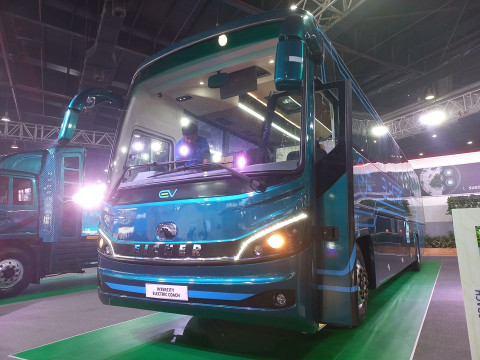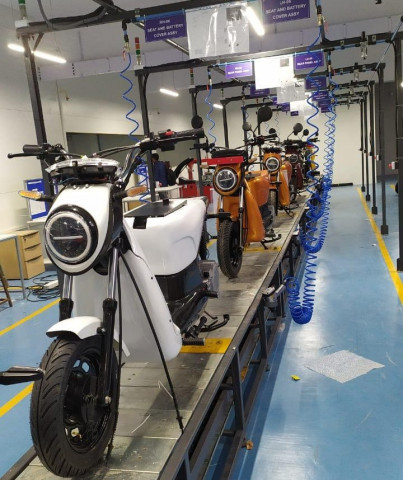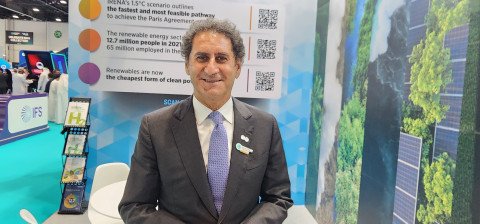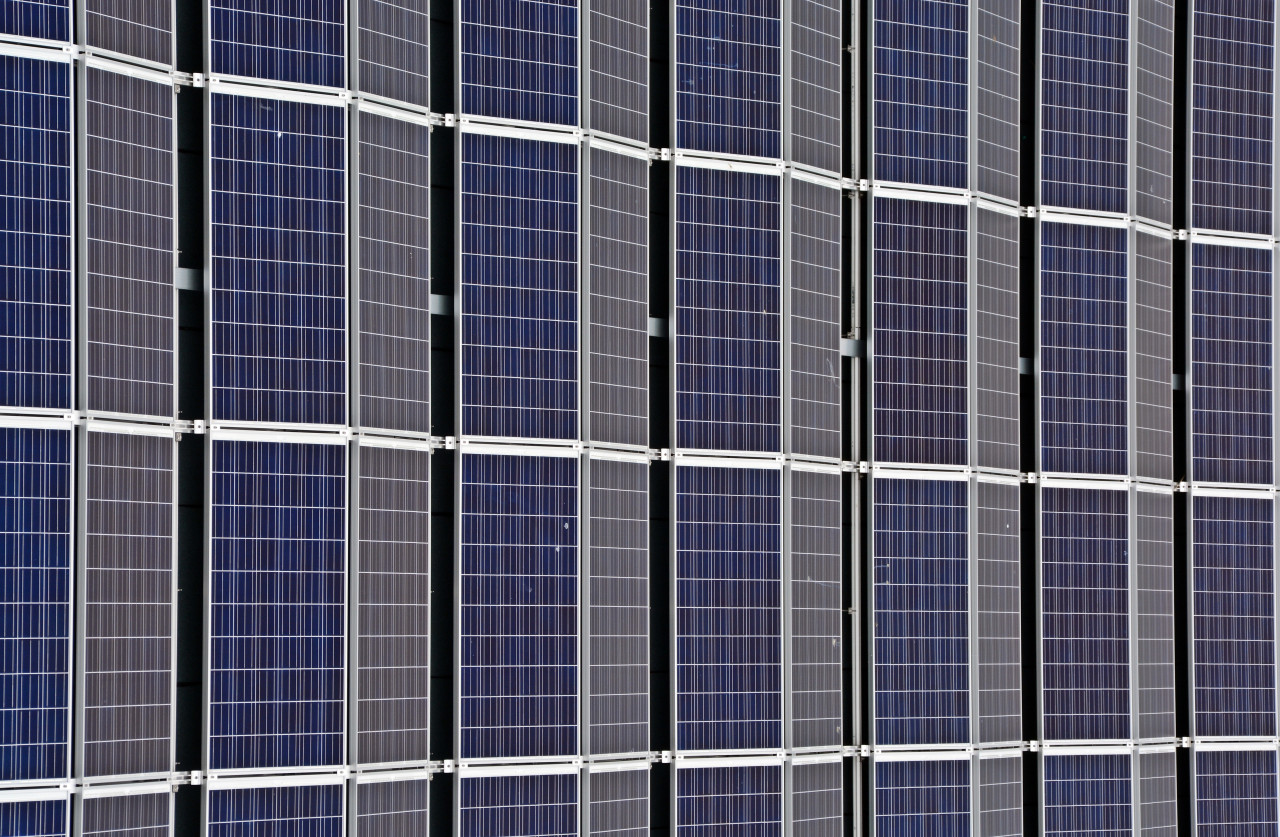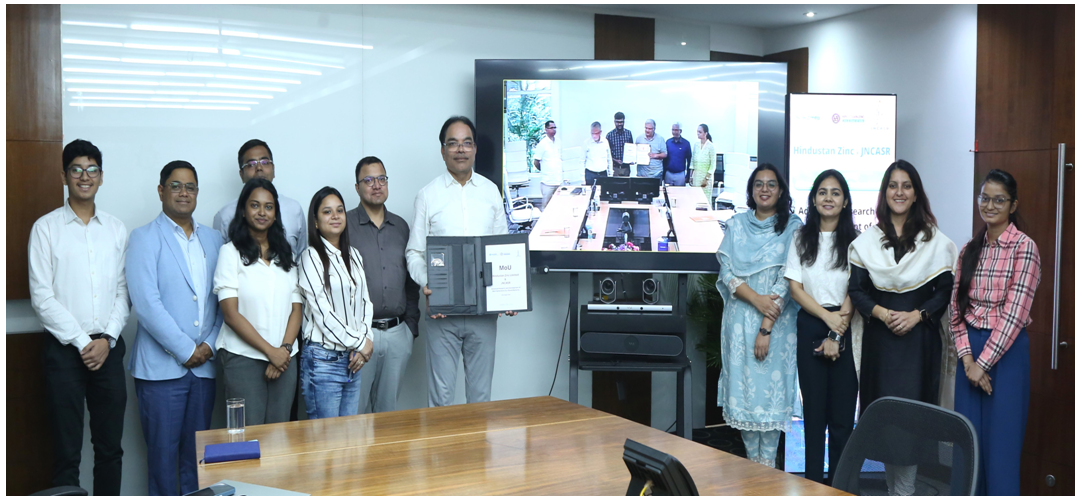Emobi developing sustainable mobility solutions for B2B last-mile delivery
The critical focus of EV startup 'Emobi' is on revolutionizing the last-mile delivery needs of the B2B segment, through strategic partnerships and innovative technologies, aimed at developing affordable, reliable, and sustainable electric mobility solutions, says Bharath Krishna Rao Potluri, Founder and CEO of Emobi, in his exclusive interview with ETN.
Emobi, an Indian EV startup based in Bengaluru, is specializing in EV design, frugal-engineering methodologies, and lean manufacturing processes across a diverse range of electric vehicles. The company's initial focus is on electric two-wheelers (E2Ws) catering to last-mile delivery, passenger transport, and even personal commute. The company was in spotlight recently for its strategic partnership with Musashi Seimitsu CO Ltd. (Musashi) and Honda Power Pack Energy India (HEID) for battery swap services for its EVs.
Behind the startup's mission is its founder and CEO, Bharath Krishna Rao Potluri. Having played a pivotal role in his family business at United Telecoms Ltd. previously, overseeing wind and solar energy assets across different parts of the country, he has now embarked on the e-mobility sector. In this exclusive interview, he spoke on his startup's vision and product development strategies, also touching upon the emerging megatrends and ecosystem developments in the Indian EV industry.
Excerpts:
Given your previous experiences in renewable energy field, how do you fit e-mobility within the larger clean energy ecosystem that is emerging and defining the course of the energy industry in India?
As CEO of our company, I see e-mobility as a crucial component within the broader landscape of clean energy in India. It's not just about revolutionizing transportation but also about integrating seamlessly with renewable energy sources to drive sustainability. By promoting electric vehicles and charging infrastructure, we contribute to reducing greenhouse gas emissions and improving air quality. Our efforts align with India's goals for energy transition, fostering innovation, and creating new economic opportunities. In essence, e-mobility represents a pivotal step towards a greener, more efficient, and sustainable future for India's energy sector.
Tell us about your startup experience with Emobi, its current focus, product development strategies and long-term plans.
Our journey with Emobi began with a passion for sustainable transportation solutions. We chose to focus on electric vehicle design and engineering because we saw a significant opportunity to contribute to a cleaner, greener future.
Our most recent creation is the Kyari vehicle, which incorporates Honda's power pack (HEID) for battery service and Musashi's powertrain. It is our first production, set for launch in India by July 2024. Leveraging Musashi's powertrain and HEID's batteries, we expect to give exceptional performance targeted to our B2B customers. This strategic alliance ensures cutting-edge performance, demonstrating our dedication to excellence in product delivery and customer service.
We are completely focused on the B2B market currently and are building our offerings only to cater to fleet operators. We'll have a better understanding of our roadmap once we introduce the current model in the Indian market by July 2024. This milestone paves the way for strategic planning, allowing us to revise objectives and develop a complete strategy for future undertakings.
In the first year itself, we need to be profitable because being bootstrapped we cannot afford to burn through cash. This year FY 24-25 is when we expect to both get into revenues and profitability, and that's sort of built into our approach of saying this has to be frugal engineering, frugal manufacturing, lean manufacturing processes, but reliable partners to ensure that the product is always well received by the end customers.
Currently, Emobi's focus is on exploring battery swapping, because we believe it is best for our B2B customers. However, we remain open to evaluating other solutions throughout multiple cycles, depending on the specific needs of our B2B customer base. Our strategy is flexible, allowing us to react to changing market demands and guarantee that our offers closely fit with the needs of our customers.
Working with partners like Honda and Musashi make us strong on critical components such as batteries, motors and controllers, as vehicle reliability and performance is derived from these three components. So, our approach has been to take the best of what is available globally, what is being manufactured locally, and integrate it into a product that is frugally engineered and built for the performance, reliability, and durability of the product.
Tell us about the technological and business partnerships that are redefining EMOBI's product and growth strategies, with more insights on your company's recent partnership with HEID.
We see a lot of opportunity in partnering with HEID for battery swapping, utilizing their substantial infrastructure expansion across the nation. Aligning our product launch strategy with their infrastructure development roadmap maximizes synergy. This cooperation not only gives us access to HEID's huge network, but it also allows us to strategically position our offerings within their growing ecosystem. By aligning our goals, we hope to profit from their infrastructure development, promoting mutual growth and market penetration.
The key specifications of Kyari EV are its performance metrics, with a peak power of 4.2 kW, a top speed of 75 km/h, and a battery powered by HEID's Honda e: swap technology. These specifications not only match but often exceed the performance of traditional 125CC internal combustion engine vehicles, providing riders with a seamless and enjoyable experience, thereby boosting confidence in the transition to electric mobility.
What according to you are the emerging megatrends (both technological and market trends) in the e-mobility space in India? How is your startup bucking up with those trends?
In India's e-mobility space, several emerging megatrends are shaping the landscape. One prominent trend is the increasing adoption of electric vehicles driven by government incentives, environmental consciousness, and rising fuel prices. Another key trend is the development of advanced battery technology, enhancing EV performance and driving range. Additionally, the establishment of charging infrastructure across cities is crucial for widespread EV adoption.
Our startup is aligning with these trends by focusing on developing affordable EVs with improved battery technology to address range anxiety concerns. We're also investing in establishing a robust charging infrastructure network, ensuring convenience for EV users and promoting sustainable transportation solutions across the country.
India is known for its frugal engineering and manufacturing in the automotive industry. In the new era of electric vehicles and battery manufacturing, how do you see the country's local manufacturing and R&D prowess taking shape?
In the realm of electric vehicles and battery manufacturing, India's local manufacturing and R&D capabilities are gradually gaining momentum. With a focus on frugal engineering, the country is leveraging its expertise in cost-effective innovation to enter the electric vehicle market. Collaborations between industry players and government initiatives are fostering growth in indigenous battery manufacturing and R&D initiatives, aiming to reduce dependency on imports and drive sustainable transportation solutions. While challenges persist, such as infrastructure development and scaling up production, India's automotive sector is poised to make significant strides in the electric vehicle landscape through its resilient manufacturing and emerging research endeavors.
Any other observations on the EV development space in India?
The EV industry is witnessing significant momentum across vehicle categories. The government policies allowing imported vehicles to come in with lower import duties subject to investment in establishing manufacturing plants in India is a new development. We expect this to significantly improve EV spread across categories, enabling more options to consumers, resulting in wider adoption. This would also push startups and incumbents to ensure they have products to meet customer expectations to compete against proven platforms slated to come into India.
